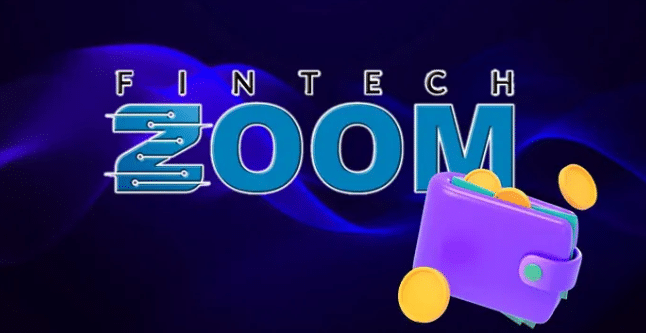Among the outstanding fintech zoom ethereum advancements, many innovations appear under the conditions of constant shifts in the digital finance context. Blockchain is one of the most revolutionary technologies in this domain and Ethereum is considered as one of the initiators of this innovation. When we narrow the focus down to finances, and more specifically – fintech, we see that Ethereum is a vital player that provides solutions that are distinct and fruitful in terms of development.
Understanding Ethereum in the Fintech Landscape
Ethereum is a decentralized platform established in the year 2015 by Vitalik Buterin and his team, and its main target is to support smart contracts and decentralized applications (dApps). While Bitcoin is mainly an electronic currency, Ethereum’s block chain supports a wider variety of functions and purposes. This flexibility opens up opportunities for fintech companies to use Ethereum’s features to raise the added value of their services and create new financial services products.
In its essence, Ethereum is a distributed platform that uses a network of computers to perform minimally sufficient tasks for the validation of transactions. This feature minimizes the possibility of a single control entity owing the whole edifice of the network, thus enhancing security and impossibility of censorship. Ether (ETH) is Ethereum’s native cryptocurrency that facilitates operations in terms of transactions and other computational operations used in the network.
Ethereum’s Contribution to Fintech Innovation
It is for this reason that Ethereum has been of great importance to the fintech sector through enabling automatic functioning of cumbersome financial procedures through the implementation of smart contracts. Smart contracting, which is the ability to execute contracts most times without the help of central authorities, enhances efficiency and speed as well as cutting costs. Ethereum is being applied in various use cases like lending, insurance, and international payments by the fintech firms.
For instance, in the conventional finance system, lending entails many middlemen including banks, and credit bureaus, and this hence takes a lot of time and is costly. In the case of Ethereum, lending can also be performed by smart contracts through which agreements will be implemented whenever specific conditions come about. This automation cuts down the probability of default and timeliness in regards to the transactions.
Also, Ethereum is an open-source protocol that encourages developers to work collectively and create. Due to numerous developers working on Ethereum from different parts of the world, the ecosystem of fintech innovation is diverse. While the collaborative work keeps pushing the optimum result, it guarantees Ethereum is one of the leading blockchain systems in the fintech sector.#Fintech Zoom Ethereum: Ethereum’s Impact on the Future of Digital Finance
The Rise of Decentralized Finance (DeFi)
Another area that Ethereum started to generate quite a significant influence is Decentralized Finance (DeFi). DeFi can be described as decentralized financial services that are provided using blockchain infrastructure and with the help of which, people do not turn to banks. Ethereum is home to most of the DeFi dApps which require the foundational structures that enable the possibility of creation of decentralized exchanges, lending applications and stable coins.
DeFi applications provide the users with more possession of their resources and provide an opportunity to perform the financial operations without involving the centralized authorities. For instance, decentralized exchange (DEX) enables the users to exchange their cryptocurrencies directly with others without the use of an outsider. This cutting-edge P2P trading eradicates the possibilities of fees and sharpens security.
Cryptocurrency lending and borrowing in the decentralized finance sector is made possible through lending platforms that do not require the user’s identity or any pre-approval before lending or borrowing the digital currencies. Smart contracts execute these transactions which in turn allow lenders to be paid an interest and borrowers provide an assurance of collateral. This system presents the chance to earn passive revenues and grant credits to other people, particularly in the underbanked areas.
The last innovation in the DeFi ecosystem is stablecoins- cryptocurrencies backed with some government-issued currency, for example, USD. These stablecoins do not fluct in the volatile market and they can be used for day to day business transactions and for storing value. It has some of the leading stablecoins such as the USDC and the DAI that help in the exchange of values and commerce.#Fintech Zoom Ethereum: Ethereum’s Impact on the Future of Digital Finance
Ethereum’s Role in Tokenization and Fundraising
Tokenization is the application of converting assets into tokens on a specific blockchain. Real estates, art pieces, and other priceless objects can be easily tokenized and sold in a very convenient manner as It is suitable for tokenization of almost anything.
ICOs and Security Token Offerings are funding methods that became possible thanks to Ethereum. ICOs enable the startups to issue utility tokens that give the token holder a right to use a particular product or service offered by the startup for funding. On the other hand, STOs are the sales of security tokens which are assets that depict ownership of an asset or a company.
These methods of fundraising decentralize capital meaning that startups can access investors from all over the world hence breaking the traditional financial systems. Although 2017 was the year of ICO, which, together with its benefits, introduced both opportunities and threats, it introduced It as a player capable of changing the traditional fundraising methods.
Challenges and the Path Forward
While Ethereum presents numerous opportunities for the fintech zoom ethereum industry, it also faces challenges. Scalability and transaction costs are ongoing issues that the community is actively working to address. The network’s popularity has led to congestion, resulting in higher gas fees (transaction costs) and slower transaction times.
To tackle these issues, It is undergoing a major upgrade known as Ethereum 2.0 (Eth2). This upgrade aims to improve scalability, security, and sustainability through a shift from the current Proof of Work (PoW) consensus mechanism to Proof of Stake (PoS). PoS reduces the environmental impact of mining and enables faster, more efficient transaction processing.
Layer 2 solutions, such as rollups and sidechains, are also being developed to alleviate congestion on the main network. These solutions process transactions off-chain and then bundle them together to be recorded on the main blockchain, reducing the load and lowering costs.
Despite these challenges, the synergy between fintech zoom ethereum is poised to drive significant advancements in the financial sector. As fintech companies continue to explore and integrate Ethereum’s capabilities, the future of digital finance looks promising.#Fintech Zoom Ethereum: Ethereum’s Impact on the Future
Real-World Applications and Case Studies
Below are some of the real-life use cases and successful examples demonstrating the Ethereum’s importance for fintech. for instance, Uniswap is a decentralized exchange that runs on Ethereum that has remodelled the manner in which people exchange their cryptocurrencies. Thus, Uniswap is organized as an application for trading cryptocurrencies without requiring intermediaries by using automated market-makers and enabling participants to provide and extract liquidity as well as earn trading fees.
Another is an illustration of an operational dod, MakerDAO- lending platform that created the ‘DAI’ stablecoin. Ether can be locked by users as a guarantee to whereby one can obtain DAI used in purchasing, lending, or investment. This system has managed to form a proper network of decentralized finance; DAI continues to hold its ground retaining its position as a stablecoin pegged to the USD.
Conclusion
Analyzing the concept of the fintech zoom ethereum, everybody can understand that this blockchain platform can become a turning point for the finance sector. Through the execution of smart contracts, spurring creation, and empowering DeFi creations, Ethereum is disrupting the financial services’ provision and accessibility. Looking at the future, it is impossible to deny the influence of Ethereum’s further development on the enhancement of fintech domain and its constant progress, making it essentially more progressive, effective, and integrated.
As Ethereum as other scaling solutions materialize 0, a platform’s capabilities will only expand, thus solidifying its function as a keystone of digital finance. Thus, for fintech and users, Ethereum is a prospect of a new, more decentralized, transparent, and open finance.#Fintech Zoom Ethereum: Ethereum’s Impact on the Future
#Fintech Zoom Ethereum: Ethereum’s Impact on the Future of Digital Finance #Fintech Zoom Ethereum: Ethereum’s Impact on the Future



[…] firms offering secure wallets and investment services, these companies are at the forefront of the crypto revolution. Here, we delve into the top 10 Bitcoin companies that are driving the industry forward […]